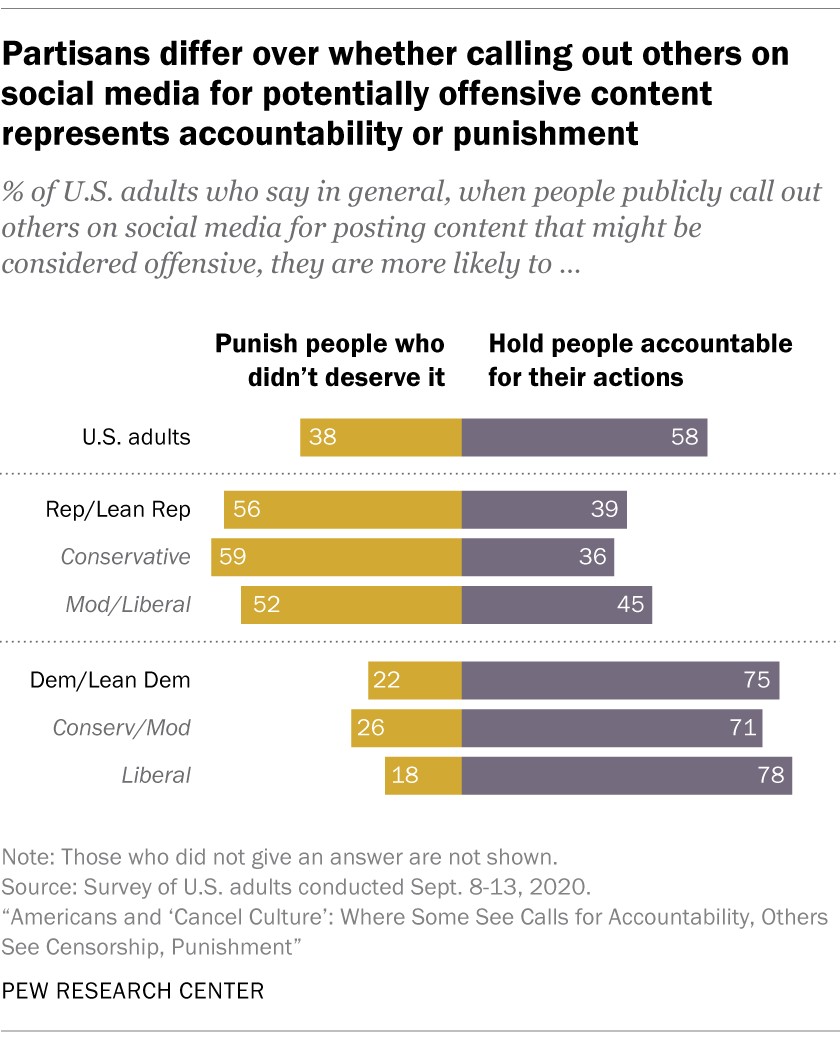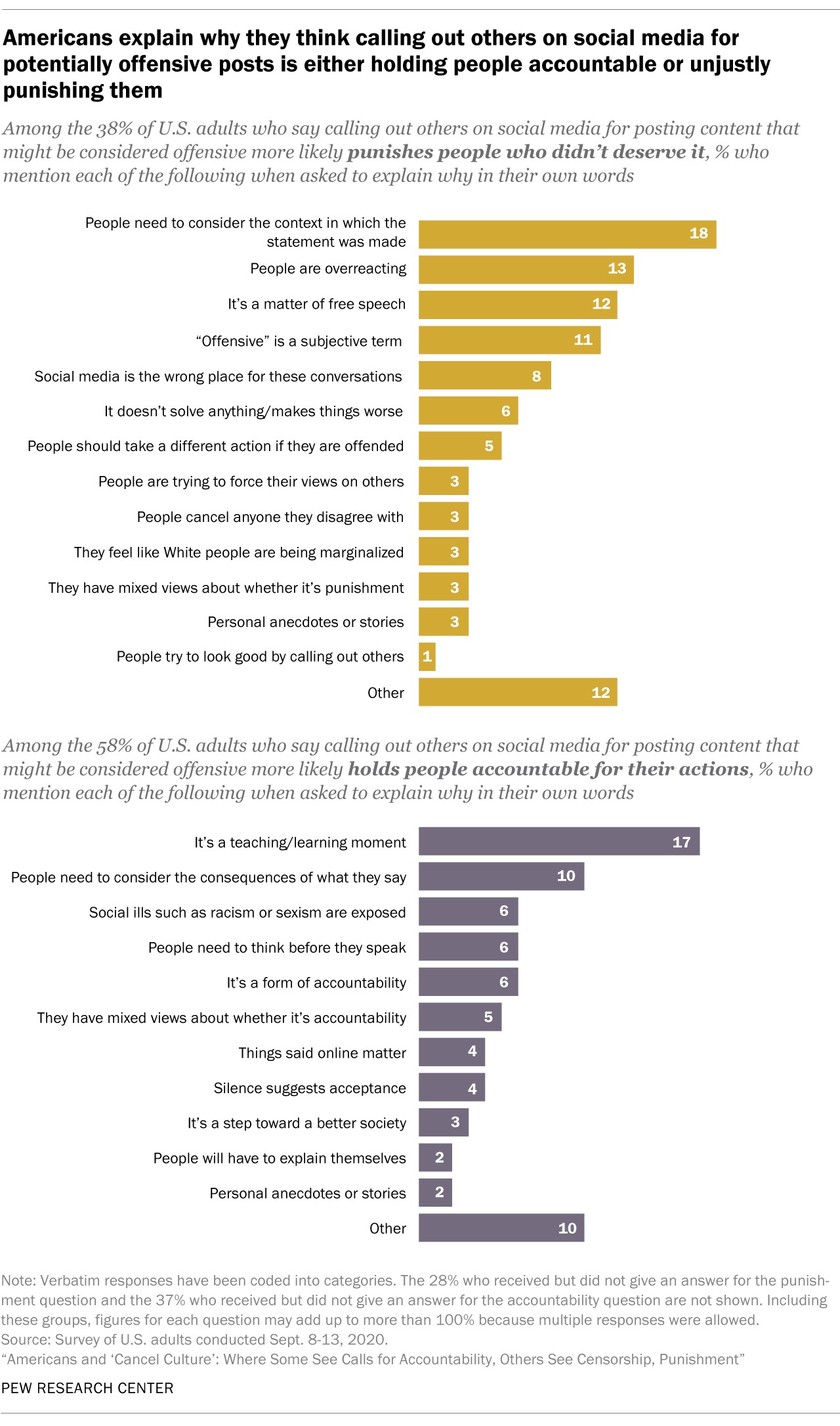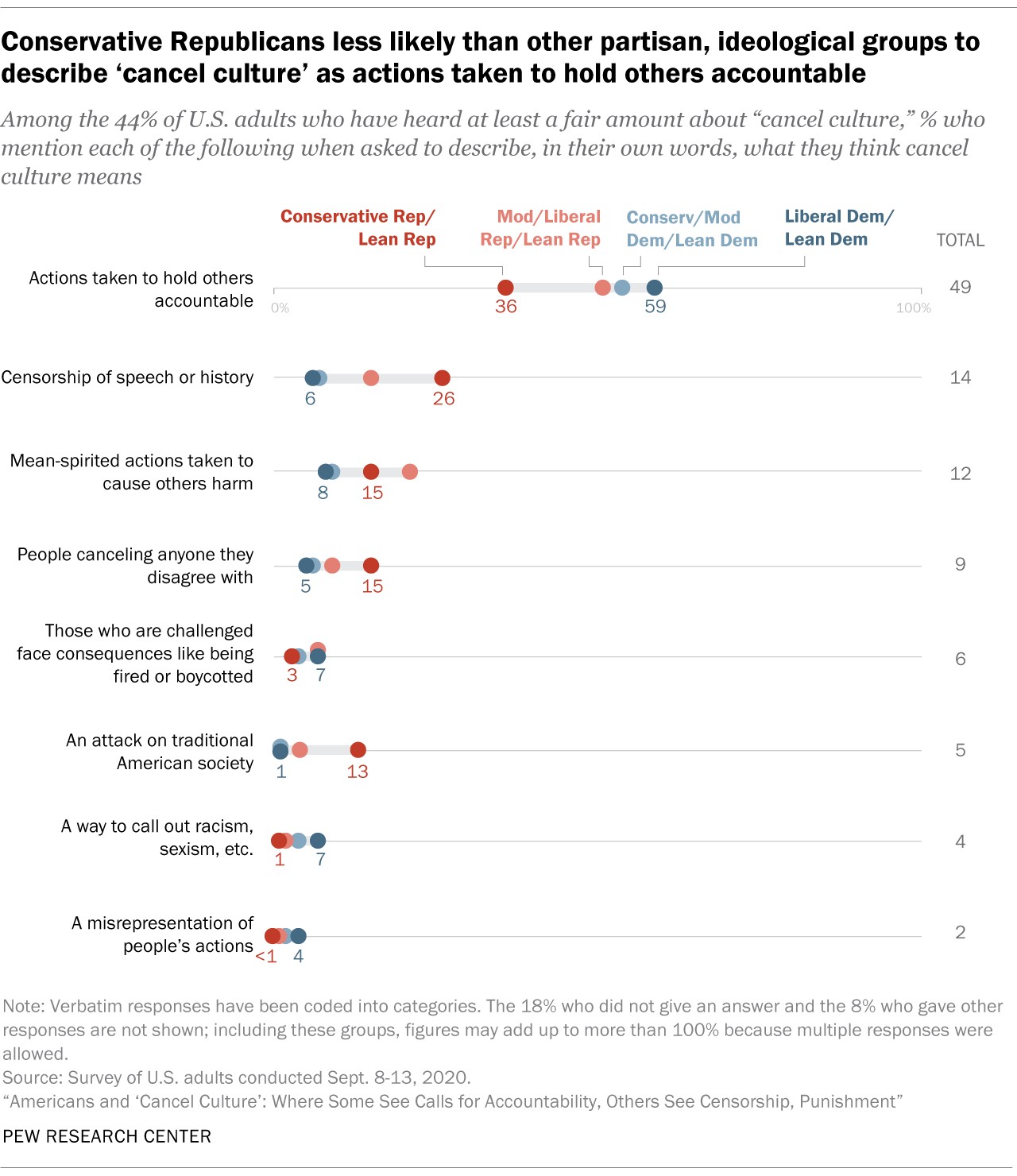What Is Cancel Culture? It’s a complex phenomenon involving public shaming and ostracism, often fueled by social media outrage. At WHAT.EDU.VN, we aim to provide clear and accessible answers to your pressing questions about cancel culture, its implications, and its broader impact on society. Explore the nuances of online accountability and societal consequences with us and discover helpful resources and expert insights.
1. Defining Cancel Culture: What Does It Really Mean?
Cancel culture is a modern form of ostracism in which an individual, usually a public figure, is subjected to widespread condemnation and boycott after behaving or expressing opinions deemed offensive. It often involves the withdrawal of support, including the cancellation of projects, removal of endorsements, and public shaming on social media. This phenomenon has sparked considerable debate, with some viewing it as a tool for accountability and others as a form of censorship.
Cancel culture arises from the increasing power of social media to amplify voices and mobilize collective action. When someone says or does something perceived as offensive, it can quickly go viral, leading to a barrage of criticism and calls for that person to be “canceled.”
1.1 The Origins of the Term “Cancel Culture”
The term “cancel culture” is said to have originated from the slang term “cancel,” which referred to ending a relationship with someone. The term has been used in film and television and gained prominence on social media.
1.2 Cancel Culture: Accountability or Unjust Punishment?
The central question in the cancel culture debate is whether it represents a fair mechanism for accountability or an unjust form of punishment. Some argue that it holds individuals responsible for harmful behavior and provides a platform for marginalized voices to be heard. Others contend that it leads to disproportionate consequences and silences diverse opinions.
2. How Cancel Culture Works: A Step-by-Step Breakdown
Understanding the mechanics of cancel culture can help individuals and organizations navigate its potential pitfalls. Here’s a typical sequence of events:
- Offensive Action: Someone says or does something considered offensive, often shared on social media.
- Viral Outrage: The action gains attention, sparking widespread outrage and condemnation.
- Public Shaming: Social media users and media outlets amplify the criticism, leading to public shaming.
- Cancellation: The individual faces consequences such as loss of employment, canceled projects, or revoked endorsements.
- Long-Term Impact: The canceled individual’s reputation may suffer long-term damage, affecting future opportunities.
2.1 The Role of Social Media in Cancel Culture
Social media platforms play a crucial role in the amplification and spread of cancel culture. Their algorithms and echo chambers can intensify outrage, making it difficult for nuanced perspectives to be heard.
2.2 The Impact on Free Speech and Open Dialogue
Critics argue that cancel culture stifles free speech and discourages open dialogue. The fear of being “canceled” may prevent individuals from expressing controversial or unpopular opinions, leading to a chilling effect on public discourse.
3. The Pros and Cons of Cancel Culture: A Balanced Perspective
Cancel culture is a double-edged sword, with both potential benefits and drawbacks. Evaluating these competing perspectives is essential for understanding its complex role in society.
3.1 The Arguments in Favor of Cancel Culture
- Accountability: Holds individuals responsible for harmful actions or statements.
- Empowerment: Gives voice to marginalized groups and amplifies their concerns.
- Social Change: Promotes awareness of social justice issues and encourages positive behavior change.
3.2 The Arguments Against Cancel Culture
- Disproportionate Consequences: Leads to excessive penalties for minor offenses.
- Censorship: Stifles free speech and open dialogue.
- Mob Mentality: Encourages online harassment and bullying.
- Lack of Due Process: Deprives individuals of the opportunity to defend themselves or seek redemption.
4. Cancel Culture Examples: High-Profile Cases and Controversies
Examining specific cases of cancel culture can provide valuable insights into its dynamics and consequences. Here are a few notable examples:
| Case Study | Summary | Outcome |
|---|---|---|
| Roseanne Barr | Fired from her own show after posting a racist tweet. | Show was canceled and later revived without her. |
| Kevin Hart | Stepped down from hosting the Oscars after homophobic tweets resurfaced. | Faced backlash but eventually continued his career after public apologies and discussions. |
| Gina Carano | Fired from “The Mandalorian” after controversial social media posts comparing the political climate to Nazi Germany. | Lost her role in the series and faced criticism but continued to work on other projects. |
| J.K. Rowling | Faced criticism and accusations of transphobia for her views on transgender issues. | Faced backlash and criticism, but her books continued to sell well. |
| James Gunn | Briefly fired from directing “Guardians of the Galaxy Vol. 3” after old offensive tweets resurfaced. | Reinstated after widespread support from cast and crew. |



4.1 The Impact on Celebrities and Public Figures
Cancel culture can have a significant impact on the careers and reputations of celebrities and public figures.
4.2 The Role of Apologies and Redemption
In some cases, public apologies and sincere efforts at redemption can help individuals overcome the consequences of being “canceled.” However, the path to forgiveness is not always guaranteed.
5. Navigating Cancel Culture: Strategies for Individuals and Organizations
In an age where social media outrage can quickly escalate, it’s essential to develop strategies for navigating cancel culture effectively.
5.1 Prevention: Avoiding Offenses and Missteps
- Think Before You Post: Consider the potential impact of your words and actions before sharing them publicly.
- Be Respectful: Treat others with respect and avoid making offensive or discriminatory statements.
- Educate Yourself: Stay informed about social justice issues and cultural sensitivities.
5.2 Response: Addressing Criticism and Seeking Redemption
- Acknowledge Mistakes: If you’ve made a mistake, acknowledge it and take responsibility for your actions.
- Apologize Sincerely: Offer a genuine apology to those who have been harmed.
- Learn and Grow: Demonstrate a commitment to learning from your mistakes and growing as a person.
- Seek Support: Consult with public relations professionals or crisis management experts to develop an effective response strategy.
6. The Future of Cancel Culture: Trends and Predictions
Cancel culture is an evolving phenomenon, and its future remains uncertain. Several trends and predictions may shape its trajectory.
6.1 The Potential for Increased Polarization
As society becomes more polarized, cancel culture may become even more divisive, with individuals and groups increasingly entrenched in their positions.
6.2 The Rise of “De-platforming” and Alternative Platforms
The rise of “de-platforming,” or the removal of individuals from social media platforms, may lead to the creation of alternative platforms that cater to specific ideologies or viewpoints.
6.3 The Need for Nuance and Critical Thinking
Moving forward, it will be crucial to foster nuance and critical thinking in discussions about cancel culture, encouraging individuals to consider multiple perspectives and avoid knee-jerk reactions.
7. Understanding Cancel Culture Through Different Lenses
To truly understand cancel culture, it’s important to consider different perspectives and frameworks.
7.1 Psychological Perspectives
Psychologically, cancel culture taps into several phenomena, including:
- Groupthink: The desire for harmony within a group, leading to irrational or dysfunctional decision-making.
- Moral Outrage: A strong emotional response to perceived injustice, often driving calls for punishment.
- Social Identity Theory: The tendency to define oneself in terms of group membership, leading to in-group favoritism and out-group derogation.
7.2 Sociological Perspectives
Sociologically, cancel culture reflects broader trends such as:
- The Rise of Social Media Activism: The use of social media to mobilize collective action and promote social change.
- The Decline of Trust in Institutions: The erosion of trust in traditional institutions such as media, government, and corporations, leading individuals to seek accountability through other means.
- The Culture Wars: The ongoing conflict between different cultural and political values in society.
7.3 Legal and Ethical Considerations
From a legal and ethical standpoint, cancel culture raises questions about:
- Freedom of Speech: The extent to which individuals should be protected from the consequences of their speech.
- Due Process: The fairness of the procedures used to determine guilt and impose punishment.
- Reputation Management: The right of individuals to protect their reputations from defamation and unwarranted attacks.
8. The Broader Impact of Cancel Culture on Society
Cancel culture has far-reaching implications for society, affecting everything from politics and culture to education and the workplace.
8.1 The Influence on Political Discourse
Cancel culture can shape political discourse by:
- Silencing Dissent: Discouraging individuals from expressing unpopular or controversial opinions.
- Promoting Conformity: Encouraging adherence to prevailing social norms and values.
- Polarizing Debates: Intensifying divisions between different political groups.
8.2 The Effects on Art, Entertainment, and Media
Cancel culture can influence the creative industries by:
- Limiting Artistic Expression: Creating a climate of fear that stifles experimentation and innovation.
- Promoting Safe Content: Encouraging the creation of content that is unlikely to offend or provoke controversy.
- Altering Historical Narratives: Rewriting or reinterpreting history to align with contemporary values.
8.3 The Implications for Education and the Workplace
Cancel culture can impact education and the workplace by:
- Creating a Climate of Fear: Discouraging open discussion and debate.
- Promoting Ideological Conformity: Encouraging adherence to prevailing social or political views.
- Affecting Career Opportunities: Limiting job prospects for individuals who have been “canceled.”
9. Cancel Culture: A Global Perspective
While cancel culture is often associated with the United States, it’s a global phenomenon with variations in different countries and cultures.
9.1 Comparing Cancel Culture in Different Countries
The dynamics of cancel culture can vary depending on factors such as:
- Cultural Norms: Differences in attitudes towards free speech, social hierarchy, and public shaming.
- Political Systems: Variations in legal protections for speech and expression.
- Media Landscapes: Differences in the role and influence of social media and traditional media.
9.2 The Role of Globalization and the Internet
Globalization and the internet have facilitated the spread of cancel culture across borders, allowing individuals and groups to mobilize collective action on a global scale.
10. How to Engage in Constructive Dialogue Instead of Canceling
One of the biggest criticisms of cancel culture is that it doesn’t foster understanding or promote positive change. Here are some alternative approaches:
- Active Listening: Try to understand the other person’s perspective, even if you disagree.
- Empathy: Put yourself in their shoes and consider their experiences.
- Respectful Communication: Avoid personal attacks and focus on the issues.
- Education: Share information and resources that can help others understand different perspectives.
- Forgiveness: Be willing to forgive and move forward, even if you don’t agree with everything the other person has said or done.
FAQ: Frequently Asked Questions About Cancel Culture
| Question | Answer |
|---|---|
| What is the difference between cancel culture and accountability? | Accountability is about taking responsibility and facing consequences for harmful actions. Cancel culture often goes beyond this, leading to disproportionate punishments. |
| Is cancel culture a form of censorship? | Some argue yes, because it stifles free speech. Others argue it’s a form of social consequence, not government censorship. |
| How can I avoid being “canceled”? | Be mindful of your words and actions, treat others with respect, and stay informed about social issues. |
| What should I do if I’m being “canceled”? | Acknowledge mistakes, apologize sincerely, and demonstrate a commitment to learning and growth. |
| Is cancel culture effective in promoting change? | It can raise awareness, but it’s debated whether it leads to lasting positive change compared to other methods. |
| What role does social media play in cancel culture? | Amplifies outrage, spreads information rapidly, and allows for mass mobilization, making it a central tool in cancel culture. |
| How does cancel culture affect different groups? | Marginalized groups may use it to hold powerful individuals accountable, while others may see it as an attack on traditional values. |
| What are some alternatives to cancel culture? | Education, dialogue, restorative justice, and community-building are some alternatives that focus on understanding and positive change. |
| Is cancel culture new? | The concept of social consequences for bad behavior is not new, but social media has amplified its reach and speed, creating a different dynamic. |
| How does cancel culture differ globally? | Varies based on cultural norms, political systems, and media landscapes. What’s considered “cancelable” in one country might be acceptable in another. |
Conclusion: Navigating the Complexities of Cancel Culture
Cancel culture is a complex and multifaceted phenomenon with both potential benefits and drawbacks. By understanding its origins, dynamics, and implications, individuals and organizations can navigate its challenges effectively and contribute to more constructive and productive dialogues about social issues.
Do you have more questions about cancel culture or any other topic? At WHAT.EDU.VN, we are committed to providing free and accessible answers to all your queries. Our platform connects you with a community of knowledgeable experts ready to share their insights and expertise. Don’t hesitate to ask – we’re here to help.
Ready to explore more and get your questions answered?
Visit WHAT.EDU.VN today and start your journey of discovery. Our services are completely free, and we’re dedicated to providing you with the information you need, quickly and easily.
Contact Us:
Address: 888 Question City Plaza, Seattle, WA 98101, United States
Whatsapp: +1 (206) 555-7890
Website: WHAT.EDU.VN
We’re here to answer your questions and provide you with the knowledge you seek. Join the what.edu.vn community today and experience the convenience of free, expert answers at your fingertips.